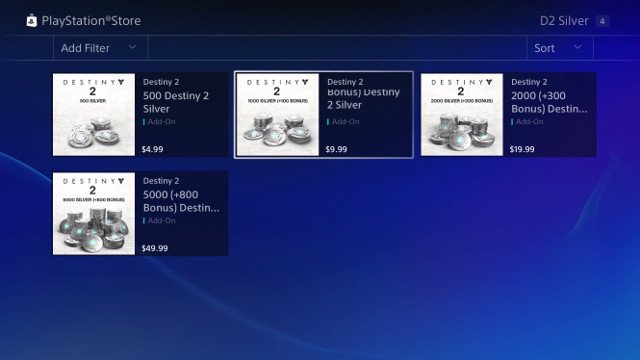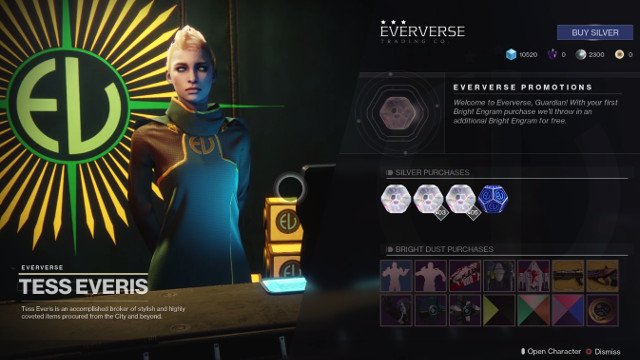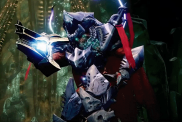Destiny 2 microtransactions have caused a stir following the game’s release, with many players worried that their presence could contribute to the game becoming pay-to-win, affording those with larger wallets the opportunity to become more powerful than their peers by way of forking out more cash.
The microtransactions are tucked away in the game’s Eververse Trading Company store, run by the NPC Tess Everis that lets players buy the in-game currency silver for real-world cash. The Eververse existed in Destiny 1, but in Destiny 2 it has returned with a vengeance, and players are not happy about that to say the least.
Also: How to Get Destiny 2‘s Bright Engrams by Earning Them
Previously, the Eververse allowed players to buy in-game items such as ornaments, emotes and Sparrows using their cash. This time around it isn’t possible to obtain these specific items from the get-go, with loot boxes now making an appearance that, as is the current trend in the gaming industry, supply gamers with randomized items.
Destiny 2 Bright Engrams price

The loot boxes, referred to as Bright Engrams, are locked out from players until they hit level 20, at which point they can be obtained after purchasing silver. Silver can be purchased in the following quantities:
- 500 silver: $4.99
- 1000 silver (+100 bonus): $9.99
- 2000 silver (+300 bonus): $19.99
- 5000 silver (+800 bonus): $49.99
This means that 100 silver is roughly worth $1, and with one Bright Engram worth 200 silver, you’re looking at spending around $2 for one loot box. Items obtained in Bright Engrams can also be dismantled for Bright Dust, which can be used to purchase specific items, though either way you’re still forced to use silver and buy randomized loot boxes.
Is Destiny 2 pay-to-win?
When opening a Bright Engram, you’ll find a small collection of in-game customization items, emotes and, if you’re lucky, a mod. These mods can be equipped to your Guardian, and they offer a small gameplay advantage to them as a result, altering their abilities and giving them a tactical advantage against opponents.
While these mods can also be purchased elsewhere after reaching level 20 without using real cash, the point remains that in the original Destiny microtransactions did not affect gameplay, and this time they do. So is it pay-to-win? Well, while the mods certainly offer gameplay advantages, they aren’t quite useful enough to really brand Destiny 2 as a pay-to-win game. Yes, it’s certainly possible to sidestep actually working to unlock them mods by handing over your cash, but the tactical advantages they provide are too slim to really disrupt the flow of the game.
However, it’s still a far cry from the original Destiny‘s microtransactions, and it’s a shame to see a full-price game with paid updates introducing more paywalls to convince players to cough up extra cash. Loot boxes are contentious enough when they’re included in a full-price game as mere cosmetic options, but when they affect gameplay, that’s a line that many don’t want to see crossed.











